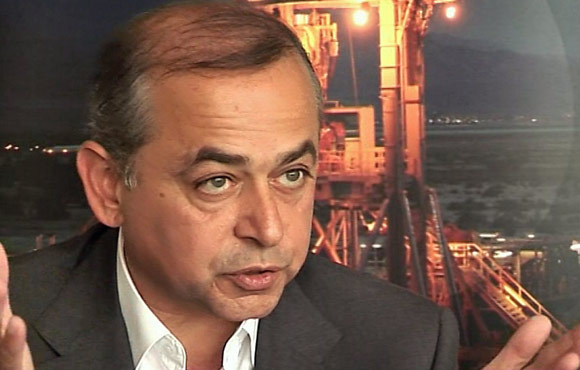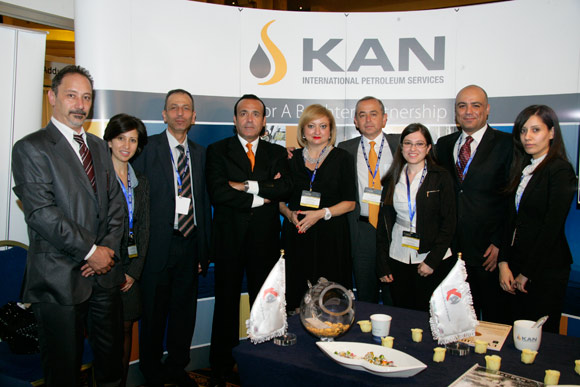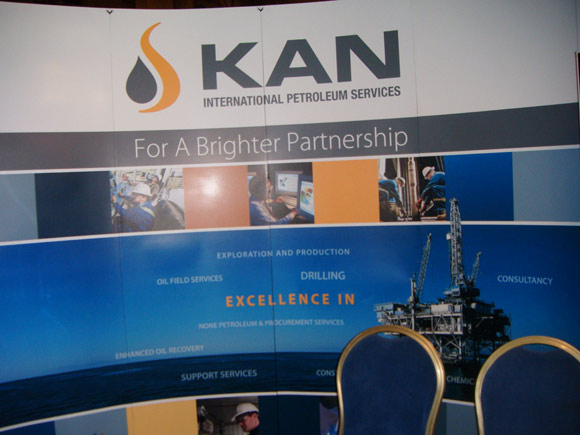Oil Health and Safety Services
On the short-term I would say $50-90 dollars a barrel, medium-term $90-120, and long-term I would say below $50 dollars a barrel due to economic factors.
Interview with Ala Nuseibeh, CEO of KAN International Petroleum Services

What is your opinion on the price of oil? What can expect to see for the short-, medium-, and, long-term for oil prices?
I can only tell you that the answer will be guess work but it has to be guessed while considering some solid facts. I’ve always looked at the oil industry as having two factors: the world economic cycle and the political stability or instability in the region.
“On the short-term I would say $50-90 dollars a barrel, medium-term $90-120,
and long-term I would say below $50 dollars a barrel due to economic factors.
The world economy is not in its best health and we will see major downturns,
I would say that what we have seen recently is only scratching the surface
and this will be heavily reflected in oil.”
I hope I am wrong but I think in the next 5-10 years we will see a significant downturn. Oil price has nothing to do with a lack of resources but rather demand.
In your opinion what are Jordan’s prospects for developing a viable oil and gas industry?
Jordan is an under-explored country when it comes to hydrocarbons for many obvious reasons but the major one was that Jordan was getting its oil for next to nothing before the war in 2001. Hence, there was no need for us in Jordan to look and explore but the equation has changed. The oil price has gone up and we need to reduce our energy costs by finding oil and this will be the best way to find a way out of Jordan’s energy crisis whether through the oil industry or renewables. The oil companies are aware of our potential and need to find oil, however, and we should be able to develop a hydrocarbon system but until we do the homework properly no one will be able to estimate our prospects for oil.

In which stage is Jordan currently in in terms of exploration and presence of international companies?
We are in the very early stages but we have made some major headway. The involvement of the NRA and the marketing made toward the international market have been extremely beneficial. There are companies here in Jordan who will likely start drilling within the next six months and hopefully at this time next year in our next interview we will be able to say that we have found oil and have wells producing 300-400 barrels a day. The seed has been planted and now we have to wait for growth.
Many countries in the MENA region are now undoing a major investment into the oil and gas industry. How do you as an oil company that utilizes expert systems going to capitalize on these opportunities in the region and locally?
The opportunities are there and when they are linked to stability and the price of oil it makes these very opportunities good or bad, high risk or low risk. In our strategy we focus on going into places where not many people are where unique opportunities exist (like in Iraq, for example) and we can have a piece of the action.
What has been your experience in Iraq so far?
It has been better than expected. Iraq has always been a quality country when it comes to the oil industry but unfortunately the past and present situational factors have not been a great help to the oil industry or their social fabric, for that matter. Should Iraq become more stable then you will see tremendous improvement in standards, similar to Saudi Aramco.

Have you been looking to other areas besides Iraq?
Of course, we always have our eyes open and are flexible with cooperation with local partners, joint-ventures, and partnerships in the ground in places like Libya, Algeria, Syria, the Gulf, and also in the Caspian region.
As a private company how would you define your relationship with the public sector in Jordan?
As an oil company we are limited to the public sector but I hope this will change if energy in Jordan faces a boom. The public sector is very advanced and the red tape is decreasing. As a corporation we have transparency, continuity, and support from the public sector.
From which country does most of your revenue come from?
At the moment we have an equal split. Over the past year and a half we have seen Iraq propel forward and we will likely see it overtake the regional revenue we have. Fundamentally speaking in Jordan, Algeria, and the Gulf we have operations. In the past it has been more regional but now Iraq is at nearly the same level and likely to overpass the region in revenue.
What are the services that you provide and how do you compete with other players on the market?
The group has different subsidiaries and we have four cornerstone elements in our gas and oil sector: drilling services, exploration/production, oil field services, and support services for all on-going operations. We seek niches where the people have yet to explore and we seek out unique services and product. We are always on the hunt for competitive contractors and partners. We have also started working with Chinese corporations and have a signifiant project for two sub stations with the National Electric Company in Jordan. We want to offer quality as well as price integrity and these allows us to be competitive.
What is an example of something you have done that reflects your services?
Jordan is a gateway to many MENA countries because it provides logistical support, manpower, and operations. For Iraq, Jordan will be the major gateway to the country and we took initiative in setting up shop there and putting people on the ground. We have set up in a relatively risky area and the risk diminishes with control. The success can be illustrated in that the minute we said to people we are on the ground, everyone wanted to come and join. Now there are 30-40 international oil companies signing up to conduct business in Iraq and spreading the risk is a fundamentally important aspect that contributes towards our ability to enter risky areas like Iraq and we have been very successful the last eighteen months by entering Iraq on a strategic basis.
Who are your clients and who would you like to attract in the future?
Our clients in Iraq over the last year have changed because the nature of business and operations have been changed. Our current and future business will be with IOCs who are looking to develop oil fields in southern Iraq. IOCs are looking for people like us to train, ensure health and safety, and provide equipment that has undergone proper inspection so they can work. We are focusing primarily on these inspections so we can proceed.
Do you see this as a promising segment?
We are developing it and we have people on the ground who have conducted the first two inspections in Iraq. Iraq is looking to drill around 6000 wells in the next five years and we want to support the drilling contractors, support the IOCs, manage the rigs, manage the drilling programs, bring in the know-how, and train the Iraqis- working in Iraq, for Iraq. There are many young people who would like to work in the oil industry and we need to bring in this technology and the training to make these people ideal for IOCs and Iraq.
What do you view as your biggest challenge?
I cannot forecast anything and I am not a politician but our business depends on political stability and economics. We hope that everything will settle and that getting the oil industry up and running in Iraq will transform the lives of most Iraqis. In general, the oil industry always has different hazards to be considered and assessed and we need to be selective with who we work with. We offer a vehicle to enter the Middle East on a partnership basis and there are many people interested in a lucrative market like the oil industry but we need to consider the current climate and what could happen in the future before we enter into engagements.
How do you imagine your company in five years?
More successful and growing significantly in the region and with the energy sector. We also want to be a major player in Iraq, supporting IOCs.
Do you have any messages about Jordan?
Jordan offers stability, integrity, viability and most importantly, security to ensure our continuing presence in Jordan. The communication is excellent, the airport being developed will be excellent, and the IT is superior. The investment in the infrastructure is very much there and continues all of the time and I can say confidently that us being here in Jordan is the right decision.